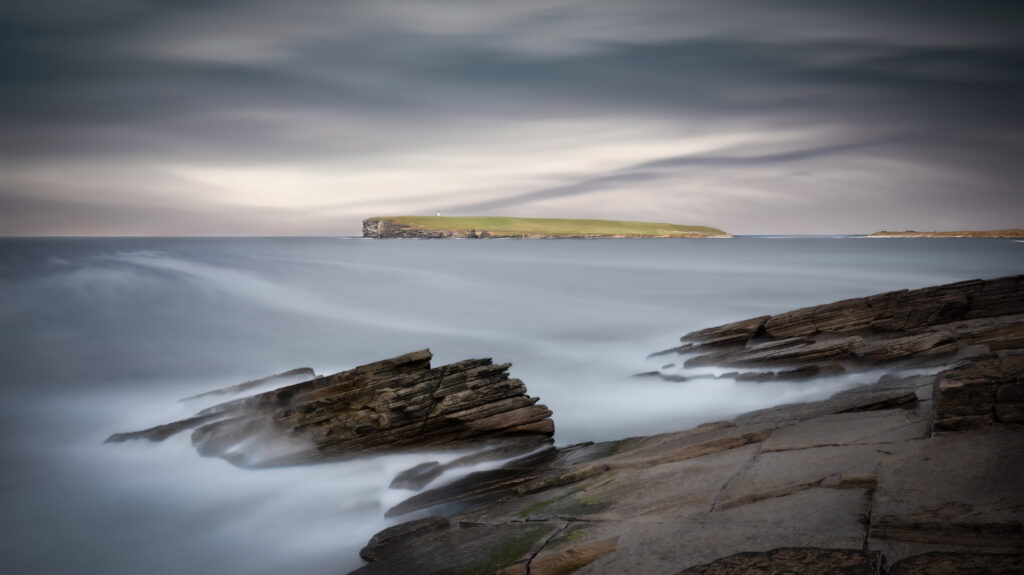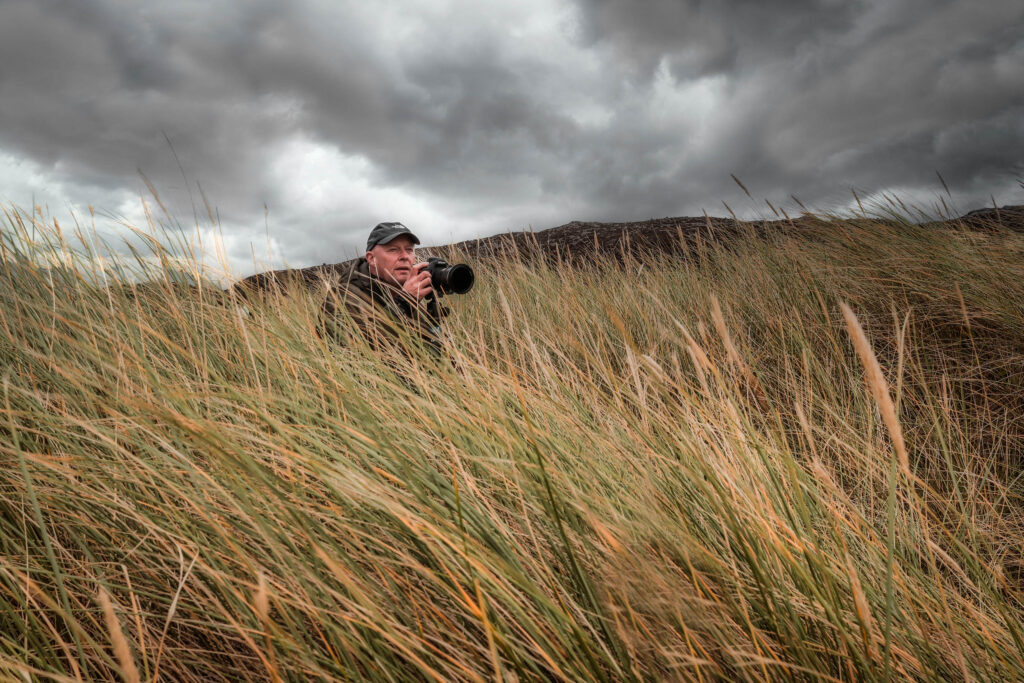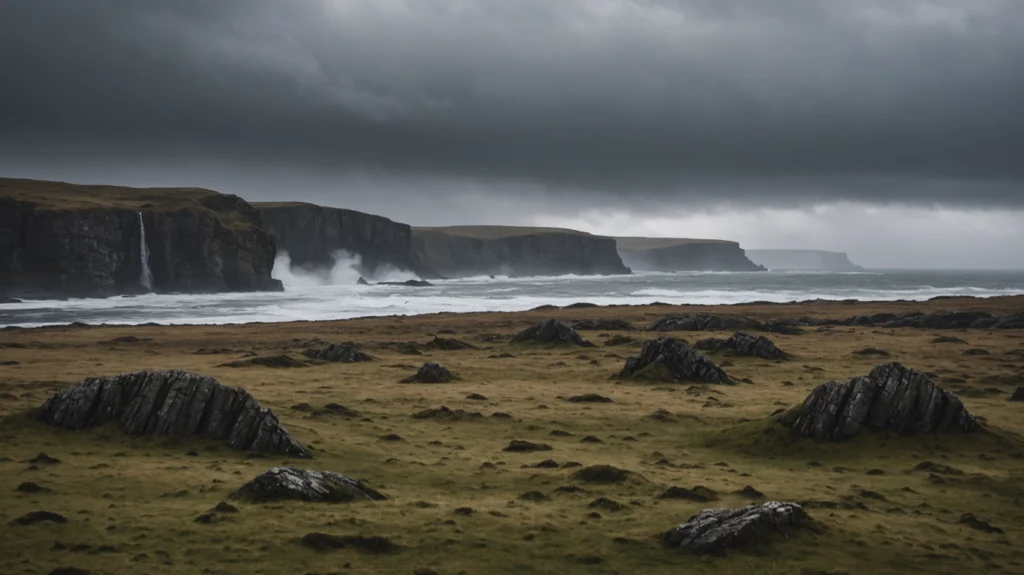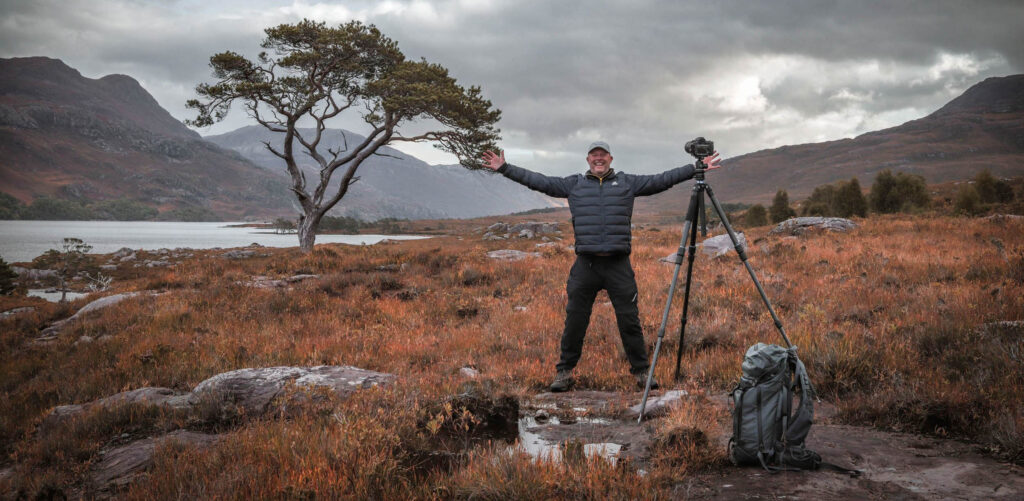I am a Professional Landscape Photographer based in the Scottish Highlands.
As a passionate photographer, I have had the incredible opportunity to share my knowledge and skills with enthusiasts from all walks of life. From beginners to professionals, my photography workshops in the Scottish Highlands and Islands have been a source of inspiration and learning for countless individuals.

Over the course of the past eight years, I have poured my heart and soul into crafting and delivering over 150 workshops that have been tailored to meet the needs and interests of my participants. Through a combination of classroom instruction, hands-on practical experience, and breathtaking outdoor excursions, my workshops offer a unique and immersive experience that is both enriching and unforgettable.
As I look back on the journey I have been on thus far, I am filled with gratitude for the opportunity to continue doing what I love and sharing my passion for photography with others.
Throughout the course of my experience, I have had the privilege of gaining insights into the wants and needs of my guests.
I have come to truly understand what they hope to achieve and expect to gain from attending a workshop centered around landscape photography.
It has been a journey of discovery, during which I have learned about their varied perspectives and unique approaches. In this book, I aim to share my knowledge and expertise with you.
This is my own personal account into what I think makes a good landscape photography workshop leader…..
Expertise and Knowledge
The workshop leader should have a strong foundation of knowledge and expertise in photography. They should possess a deep understanding of technical aspects such as camera settings, composition, lighting and post-processing techniques. They should also be well-versed in the creative aspects of landscape photography, such as story-telling, visual aesthetics and capturing emotion.
The workshop leader should have a strong track record of producing high-quality landscape photographs and can demonstrate their proficiency in these areas. It is important that their experience in teaching or leading workshops be considered as well as any recognition awards they have received.

Teaching and Communication Skills
Landscape Photography often involves capturing scenes with varied lighting conditions, compositions and depth of field. I believe that a workshop leader should provide technical guidance to enhance the landscape photograph. Effective leaders should possess excellent teaching and communication skills and able to convey complex concepts in a clear and understandable manner adapting these skills to the different learning styles and level of experience among the participants.
To be able to do this effectively by engaging with the clients and offering guidance and feedback in a supportive and encouraging manner.
I have found that providing practical demonstrations provides my guests an opportunity of hands-on learning. I am always actively involved in the location sessions demonstrating techniques and guiding the guests with various techniques in capturing a landscape photograph. I will often explain my thought process and technique and allow them to practice what they have learnt and provide guidance and feedback.
I believe that by showcasing my own photographic techniques and proceses, explaining the rationale behind a decision provides added value to their experience. By observing my approach and technique, the participants can gain invaluable insights and apply them in their own work.
This can provide a practical and visual example of how to apply the concepts and techniques discussed during the workshop as well as creating a shared experience and camaraderie. My guests can feel a stronger connection with me, knowing that they are going through the same creative process and facing similar challenges. I feel it enhances the overall workshop atmosphere.


The Photographer’s Knowledge of the Location
The workshop leader’s knowledge of the location is incredibly important for several reasons:
Finding Photogenic Locations: A landscape photographer with in-depth knowledge of the location can guide participants to photogenic spots that offer beautiful compositions and unique features. They will be familiar with hidden gems, viewpoints, and lesser-known locations that can result in compelling images.
Timing and Lighting: Understanding the timing and lighting conditions of a location is crucial for landscape photography. A knowledgeable photographer can advise on the best times of day for optimal lighting, such as golden hour or blue hour, and help participants plan their shoots accordingly. They can also anticipate how the landscape may change with different weather conditions or seasons.
Composition and Framing: Different landscapes offer distinct compositional opportunities. A photographer who knows the location well can suggest effective composition techniques based on the available elements, such as leading lines, foreground interest, or natural frames. This knowledge helps participants create visually appealing and well-composed images.


The Photographer’s Knowledge of the Location
Safety and Logistics: Landscape photography often involves venturing into remote or challenging environments. A photographer with knowledge of the location can guide participants on safety precautions, such as potential hazards or weather-related risks.
Storytelling and Context: A landscape photographer’s knowledge of the location allows them to provide insights into the history, culture, or natural significance of the area. This understanding can help participants capture images that tell a more meaningful story or convey a sense of place.
Adaptability to Changing Conditions: The landscape can be unpredictable, with changing weather, lighting, or natural events. A knowledgeable photographer can adapt to these conditions and guide participants on adjusting their approach, finding alternative shooting locations, or embracing unexpected opportunities that arise.
Overall, the landscape photographer’s knowledge of the location enhances the workshop experience by providing participants with valuable insights, guiding them to the best shooting opportunities, and ensuring a safer and more productive photography outing. It helps participants make the most of the landscape’s potential, resulting in more impactful and meaningful images.


Does Size Matter
Yes, the size of the group in a photography workshop can have a significant impact on the overall experience. Here are a few reasons why group size is important:
Individual Attention: A smaller group size allows the workshop leader to provide more individualised attention to each participant. They can address specific questions, offer personalised guidance, and provide feedback tailored to each participant’s skill level and needs. This personalised attention can greatly enhance the learning experience and ensure that participants receive adequate support and feedback.
Interaction and Collaboration: A smaller group size fosters a more intimate and interactive environment. Participants have more opportunities to engage in discussions, share ideas, and collaborate with both the workshop leader and fellow participants. This interaction can lead to a richer learning experience as participants can learn from each other, exchanging perspectives, experience and benefit from collective creativity.
Flexibility and Adaptability: With a smaller group, the workshop leader has greater flexibility to adapt to the specific needs and interests of the participants. They can adjust the pace, content, and activities based on the group dynamics and individual goals. This flexibility allows for a more customized and tailored experience that can better address the unique requirements of each participant.


Field Shoot Experience: On location, a smaller group size is beneficial for several reasons. It reduces the chance of overcrowding at popular shooting locations, allowing participants to have a more unobstructed view and more opportunities for unique compositions. It also minimises distractions and enhances the overall concentration and focus on the subject matter.
Feedback and Critique: In a smaller group, the workshop leader can provide more in-depth feedback and critique on participants’ work. They can spend more time reviewing and discussing individual images, offering specific suggestions for improvement and helping participants refine their skills. This personalised feedback is crucial for growth and development as a photographer.
Logistics and Organisation: Managing a smaller group is generally easier in terms of logistics and organization. It allows for smoother coordination of transportation, accommodations, and scheduling.
Additionally, a smaller group size often means less time spent waiting or maneuvering in the field, maximiing the time available for shooting and learning.
That said, the ideal group size can also depend on the specific workshop objectives, the complexity of the subject matter, and the resources available. In some cases, larger groups can foster a different type of collaborative and dynamic atmosphere. Ultimately, striking the right balance between group size and individual attention is crucial to ensure a rewarding and effective workshop experience.
You Should Feel Inspired and Motivated
An excellent workshop leader should create a positive learning environment. I believe in fostering a supportive and encouraging atmosphere where participants feel comfortable sharing their work, ideas, and challenges. It is important that constructive feedback is encourages and opportunities are created for participants to learn from one another. By celebrating the successes of participants, no matter how big or small, is to instill a sense of achievement and motivation.
A workshop leader should inspire and motivate the participants to explore their creativity, push their boundaries and develop their own unique photographic style.The leader should share their own experiences, successes and challenges, providing insights and encouragement. By sharing their passion for photography, the leader can ignite enthusiasm and inspire participants to continue their photographic pursuits beyond the workshop.

An excellent workshop leader should be passionate about landscape photography and inspire others through their enthusiasm. Their passion should be evident in their work, discussionbs and interactions. You should look for leaders who can convey their love of the craft, share their personal stories and experiences, inspire and motivate you to move you forward in your thirst of knowledge and desire to learn and explore.
You should feel motivated and inspired to connect with nature, appreciate the beauty around you and to capture it through your lens.
Are Post-Processing Sessions Worth It?
When I first started running my residential workshops, editing classes were pretty much non-existent. However, it soon became very clear to me that many of the participants would really enjoy a couple of sessions editing and reviewing their images. I, therefore, quickly introduced it into my weekly workflow.
I would strongly advise finding a leader who offers this because landscape photography often involves post-processing to enhance the images. Or an illustrative look how to stitch a panorama or a focus blend together can be a very useful few hours spent. Therefore, this should be a consideration when choosing a workshop.
Here below, I have listed some of the key benefits of having these classes included on your workshop:
Skill Development: Editing sessions provide participants with valuable guidance and instruction on post-processing techniques. They learn how to enhance their images, adjust exposure and colours, apply creative effects, and bring out the best in their photographs. By receiving hands-on editing instruction, participants can refine their skills and elevate their images to a higher level of quality.
Workflow Optimisation: Workshops that include editing sessions often cover efficient workflow practices. Participants learn how to organise and manage their image files, streamline their editing process, and develop a consistent editing style. These workflow optimisation tips help participants save time and maintain a structured approach to their post-processing tasks.


Are Post-Processing Sessions Worth It?
Creative Expression: Post-processing offers an opportunity for participants to add their artistic touch and express their vision. Editing sessions allow photographers to explore different styles, experiment with creative effects, and fine-tune their images to match their intended visual narrative. Participants can discover new possibilities and develop their unique editing style during these sessions.
Image Enhancement: Through image review sessions, participants receive constructive feedback on their photographs from the workshop leader and fellow participants. This feedback helps identify strengths and areas for improvement in their images. Participants can gain insights into composition, lighting, storytelling, and other elements that impact the overall impact of their photographs. This feedback is instrumental in honing their skills and developing a critical eye for their own work.
Learning from Peers: Image review sessions also offer an opportunity for participants to learn from each other. Seeing the work of fellow photographers and listening to their feedback expands one’s perspective and inspires new ideas. Participants can discover different approaches, techniques, and creative interpretations, leading to a richer and more diverse learning experience.
Confidence Building: Receiving positive feedback and constructive critique on their images during image review sessions can boost participants’ confidence. It validates their skills, affirms their creative choices, and motivates them to continue pushing their boundaries. The supportive environment created in these sessions encourages participants to explore their potential and take creative risks.
Developing a Critical Eye: Regular image review sessions help participants develop a critical eye for their own work. By analysing their images alongside others, participants gain a deeper understanding of what makes a compelling photograph. They learn to evaluate their images objectively, identify areas for improvement, and develop their own visual voice.
Overall, editing and image review sessions in photography workshops provide participants with valuable opportunities to enhance their skills, refine their artistic vision, receive feedback, and learn from both the workshop leader and their peers. These sessions contribute to a well-rounded and comprehensive learning experience, empowering participants to grow as photographers and improve the quality of their work.
How Important Is The Photographer?
VERY….you knew I was going to say that didn’t you?
But here’s why….
Credibility and Expertise: A workshop leader with a strong reputation in the photography community is often seen as credible and knowledgeable in their field. Their reputation reflects their expertise, skills, and experience, which can instill confidence in participants that they will receive high-quality instruction and guidance.
Trust and Reliability: A leader with a positive reputation is associated with trust and reliability. Participants are more likely to trust the leader’s ability to deliver on their promises, provide a well-organised workshop, and deliver a valuable learning experience. Reputation builds trust, which is essential for participants to feel comfortable investing their time, effort, and resources into the workshop.

Inspiring and Motivating Factor: A leader with a strong reputation can serve as an inspiring and motivating factor for participants. Knowing that they will be learning from someone respected and admired in the field can generate excitement and enthusiasm. Participants may be more inclined to attend the workshop and engage actively in the learning process, knowing they have the opportunity to learn from a leader who has achieved recognition and success.
Positive Word-of-Mouth and Referrals: A workshop leader’s reputation can lead to positive word-of-mouth recommendations and referrals. Participants who have had a positive experience with the leader are likely to share their feedback and recommend the workshop to others. Positive testimonials and referrals can attract more participants, further enhancing the leader’s reputation and credibility.
Compatibility and Connection: Trust your instincts and assess the compatibility and connection you feel with the workshop leader. Consider their personality, teaching approach and communication style. It’s important to attend a workshop led by someone with whom you feel comfortable with, inspired by and motivated to learn from.
However, while a leader’s reputation is important, it should not be the sole factor in choosing a workshop. It’s essential to consider other aspects such as the workshop content, teaching style, participant reviews, workshop objectives, and personal learning goals. Ultimately, finding a workshop led by a leader with both a strong reputation and alignment with your learning needs and interests will likely result in a more fulfilling and valuable experience.
What Happens After The Workshop
Support and continued learning after a landscape photography workshop are important for participants to reinforce what they have learned, continue their growth as photographers, and stay connected with the photography community. Here are some ways to support and continue learning after attending a workshop:
Workshop Materials and Resources: A good workshop leader often provides participants with workshop materials, including handouts, presentations, and reference guides. These resources can serve as valuable references for participants to revisit and reinforce the concepts covered during the workshop.
Online Communities and Forums: Joining online communities and forums dedicated to landscape photography can provide ongoing support and a platform for continued learning. Participants can connect with other workshop attendees, share their work, seek feedback, ask questions, and engage in discussions about photography-related topics. These communities can be a valuable source of inspiration, knowledge, and networking opportunities.
Mentorship or Coaching Programs: Some workshop leaders offer mentorship or coaching programs for participants who seek personalised guidance and continued learning. These programs provide ongoing support, feedback, and tailored instruction to help participants further develop their skills and achieve their photography goals. Mentorship or coaching can be conducted through one-on-one sessions, group discussions, or online platforms
Personal Projects and Assignments: Set personal projects and assignments for yourself to continue practicing and honing your skills. These projects can help you apply the techniques and concepts learned during the workshop and challenge yourself creatively. They provide opportunities for self-reflection, experimentation, and growth as a photographer.
Critique Groups or Photo Clubs: Joining critique groups or photo clubs can provide regular opportunities to share your work, receive feedback, and engage in constructive discussions. These groups can be local or online and offer a supportive community of fellow photographers who can help you refine your skills, provide different perspectives, and inspire ongoing improvement.
Continued Education and Learning: Consider attending additional photography workshops, seminars, or conferences that focus on landscape photography or related topics. These events offer opportunities to learn from different experts, explore new techniques, and stay updated with the latest trends and advancements in photography.
Remember, continued learning and growth in photography are ongoing processes. It’s important to maintain curiosity, seek new challenges, and push yourself creatively. By staying engaged in the photography community and actively pursuing opportunities for learning, you can build upon the foundation established during the workshop and continue to develop your skills and artistic vision.







